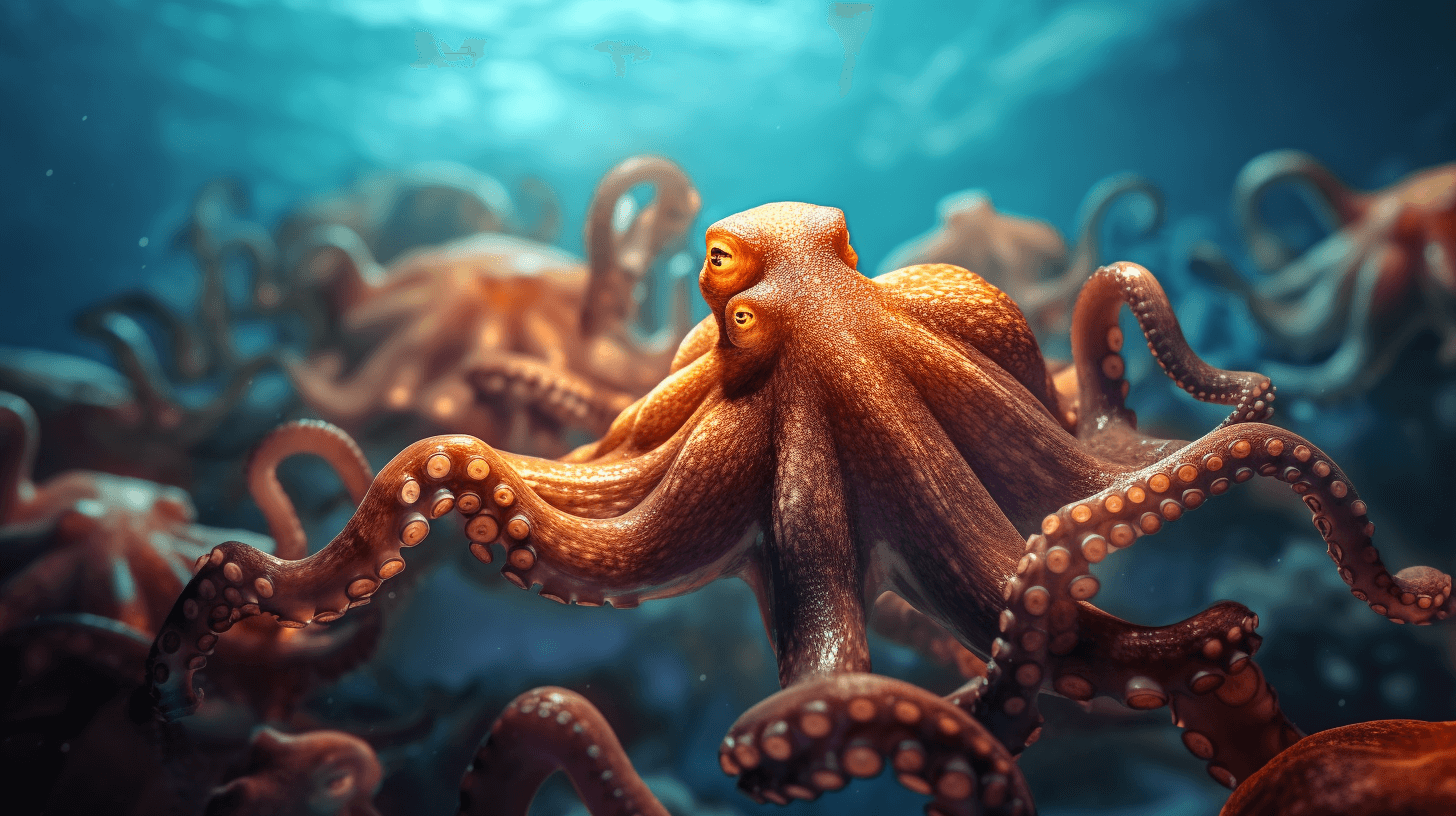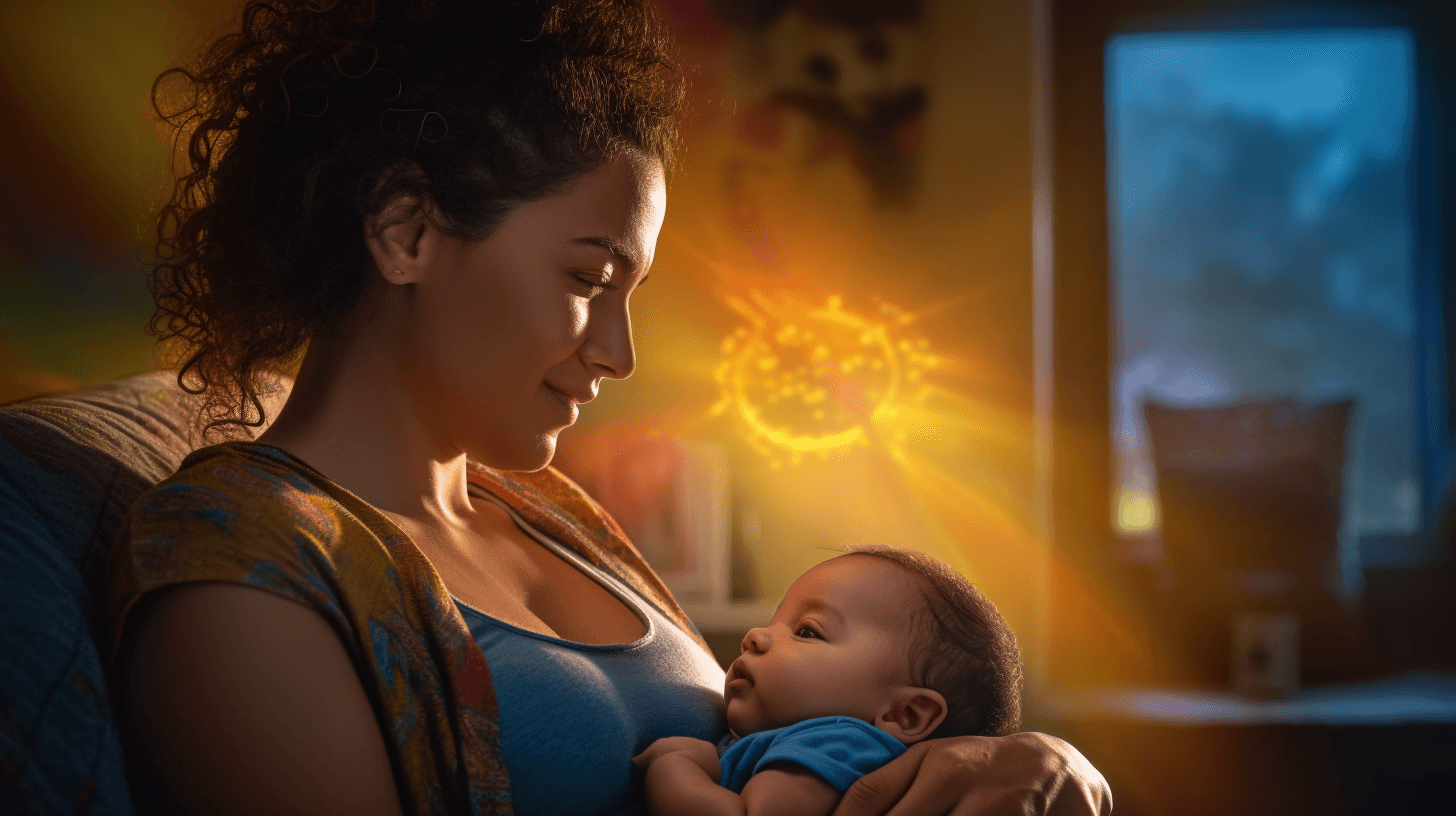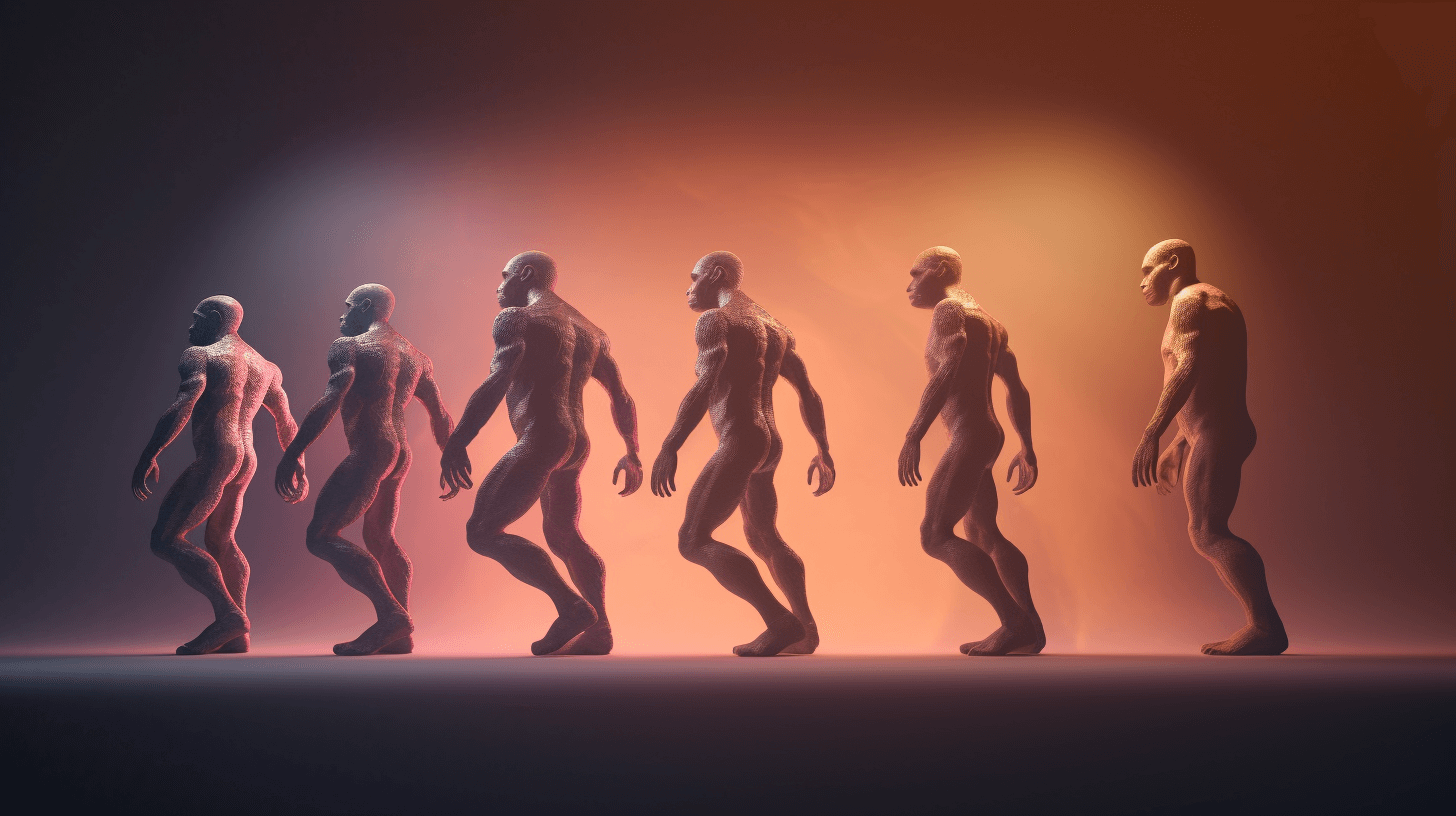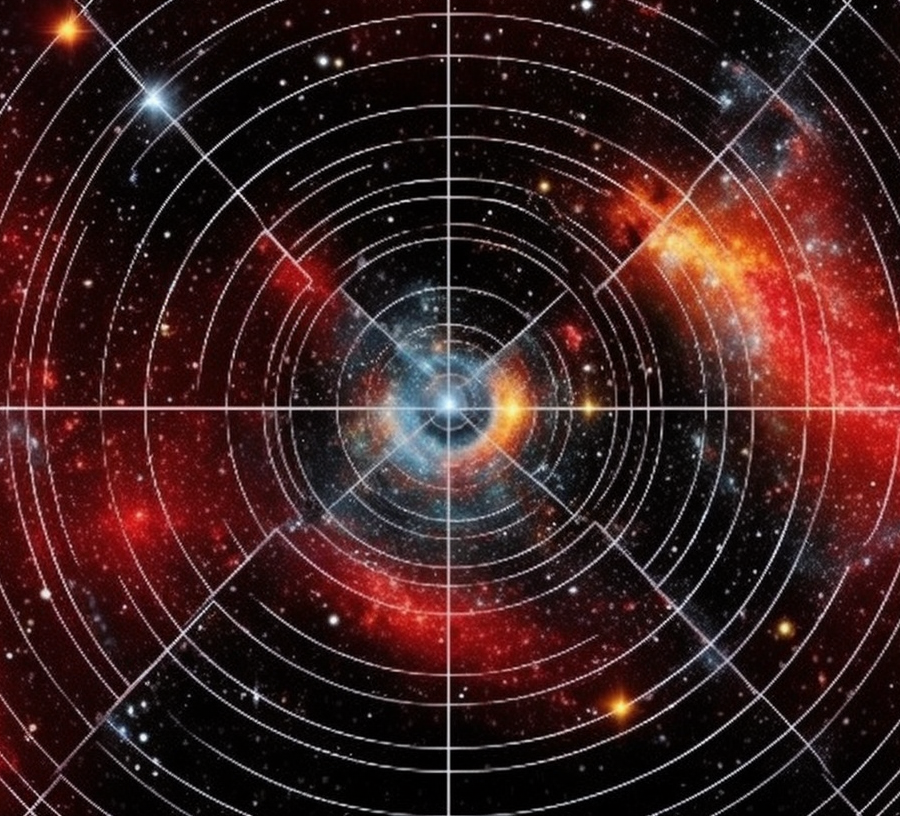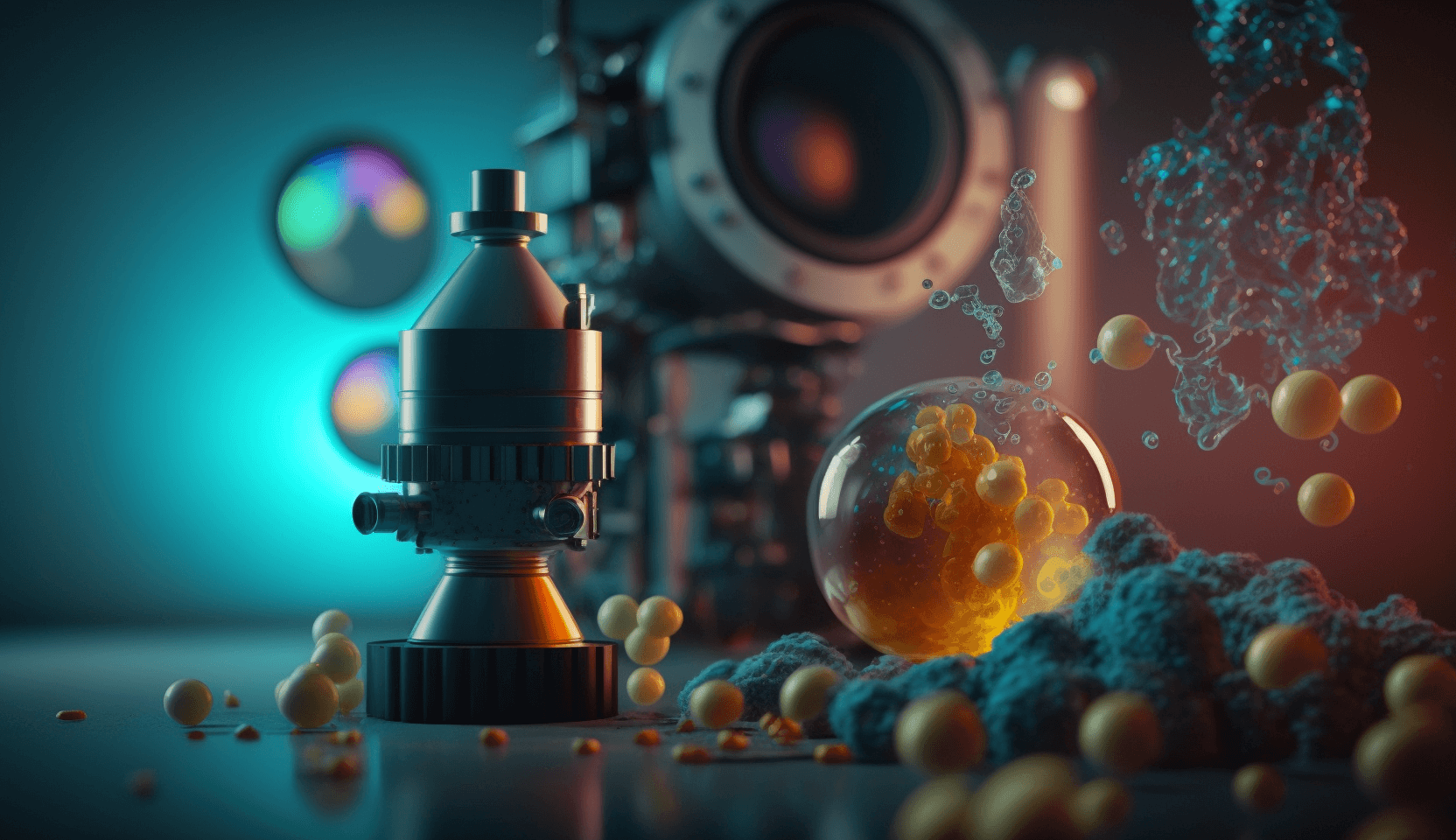😱🌊🐙 Octopus Get Bad Dream o’ Wot?
No can believe, but we get one story dat could make you tink twice. Costello da Octopus 🐙 stay sleeping on top da glass wall of hims tank, located in Rockefeller University for New York. 🏙️🎓 For half hour, da buggah stay sleeping good good 💤. Then, da kine octopus start fo’ act strange. Him skin start fo’ change colors and texture like how octopuses stay do when they trying fo’ hide. 🎭🌈
Next t’ing we know, Costello start fo’ move around on top da glass, heading down to da sandy bottom of his tank. Him arms go curl up all over his body and then he start fo’ spin around like one wild cyclone 🌪️. Like dat no enough, Costello went ink up half his tank! 🌫️🌑
Eric Angel Ramos, one marine scientist, been see dat after da ink clear, Costello was holding on tight to one pipe, like he ready fo’ kill da ting. 😠💪 “Dis no normal octopus behavior,” Dr. Ramos wen say, who now stay at University of Vermont.
Afta da crazy episode, Costello went back to acting normal, eating his grindz 🍤 and playing wit his toys 🎠. “We were completely dumbfounded,” said Marcelo O. Magnasco, one biophysicist at Rockefeller.
Maybe Costello was having one nightmare, da researchers went speculate. They shared this idea and other possible explanations in one study uploaded to da bioRxiv website. Da kine study still gotta get reviewed by other scientists. 📑🔬
Afta da incident, Dr. Ramos wen go look back at da footage of Costello’s activity, which was recorded as part of a behavior and cognition study. 📹🧠 In total, da team found three more shorter instances dat appeared similar.
To Dr. Magnasco, da behaviors exhibited in Costello’s longest spell evoked da acting out of a dream. The curling of arms over his body looked like a defensive posture, he said. In da footage, da animal is seen maybe trying to make himself look larger, and then he tries an evasive maneuver — inking.
When he fails to escape, it seems like Costello seeks to subdue a threat by strangling da pipe, Dr. Magnasco said, adding, “This is da sequence of a fight.” 🥊🥊 But he also acknowledged that “this is one isolated instance on an animal dat had its own peculiarities.” 🤷♂️
There are other explanations for da behavior, such as a seizure or neurological problems, which could be related to Costello having lost parts of two limbs before he was caught. But Dr. Magnasco said he hoped dat, by reporting da incident, other scientists would watch out for da behavior, which his group observed by mere chance. 🧐🔍
Tamar Gutnick, a neuroethologist at da University of Naples Federico II in Italy who wasn’t part of da study, said dat da researchers needed to address questions in peer review, like one about what happened around da same time da next day.
Her colleague at da same university, Michael Kuba, a marine behavior biologist, also said they needed to detail Costello’s typical sleeping behavior. The study’s researchers said dat they could account for such queries, as they have footage of da octopus’s entire life in da lab. 🎥👀
Another problem with interpreting this octopus’s behavior, Dr. Kuba said, is that Costello “was not completely chipper and healthy”: The animal had stomach parasites. Dr. Kuba suggested that some of da behaviors, such as da curling of arms, might have resulted from cramps, perhaps because of a problem with Costello’s digestive system or from da parasites reaching a part of his nervous system. Similar behaviors occur in captive octopuses, and they’re usually related to stress or age, he said. Costello died about six weeks after da longest episode. 😔🐙⏳
Still, the idea of dreaming in octopuses is compelling, Dr. Gutnick said. The Rockefeller team isn’t the first to propose da idea dat cephalopods dream as they move through different phases of sleep. Because octopus body patterning is controlled by the brain, researchers have wondered if patterns during sleep could be responses to dreamlike replay of events. 💭🛏️🔄
In their own research, Dr. Kuba and Dr. Gutnick recently recorded electrical signals from an octopus’s brain. That opens the possibility that researchers could snoop on octopuses’ brain activity during sleep and maybe connect behaviors and body patterning during sleep with shifts of brainwaves to study processes linked to dreaming. 💡🔬💤
But dat is not necessarily related to dis observation, Dr. Gutnick said, adding, “You have to show dat they have dreams before you think about nightmares.” 🛏️💭😨 So da question still stay: dis octopus was having a nightmare o’ wot?”
NOW IN ENGLISH
🌊🐙💭 Dream or Nightmare? Octopus Behavior Baffles Scientists
In a revelation that’s as mystifying as it is intriguing, an octopus named Costello was observed displaying peculiar behavior while asleep at New York’s Rockefeller University. 🌃🎓 After 30 peaceful minutes of slumber 💤, Costello’s routine nap took a startling turn as his skin began shifting colors and textures, akin to the typical camouflage of a cephalopod. 🎭🌈
What happened next was even more unexpected. Costello moved across the glass of his tank, descending to the sandy bottom while curling his arms protectively over his body, before spinning around like a frenzied whirlwind 🌪️. As if this wasn’t strange enough, the bewildered octopus proceeded to ink up half of his tank! 🌑🌫️
Marine scientist Eric Angel Ramos observed that once the ink cleared, Costello was seen gripping a pipe as if in a battle for his life. 😠💪 “This is not typical octopus behavior,” Ramos, who is currently based at the University of Vermont, stated.
After this strange episode, Costello resumed normal behavior, eating his meals 🍤 and amusing himself with his toys 🎠. “We were completely dumbfounded,” said Marcelo O. Magnasco, a biophysicist at Rockefeller. The researchers speculated that Costello may have been experiencing a nightmare. This theory, along with others, was presented in a study uploaded to the bioRxiv website, awaiting formal review. 📑🔬
Post-incident, Ramos examined footage of Costello’s peculiar actions, captured as part of a behavior and cognition study 📹🧠. The team discovered three more similar, albeit shorter, episodes in the footage.
Dr. Magnasco suggested that the octopus’s behavior could be interpreted as acting out a dream. Costello’s defensive posture, attempts to make himself look larger, and his desperate inking appeared as a sequence of actions typically associated with confrontation 🥊🥊. However, he conceded that this was an isolated event involving a uniquely behaving animal 🤷♂️.
Other explanations for Costello’s behavior, such as a seizure or neurological issues, possibly linked to his prior loss of two limbs, were considered. Magnasco expressed hope that this report will encourage other scientists to look out for similar behavior 🧐🔍.
Tamar Gutnick, a neuroethologist at the University of Naples Federico II in Italy, stated that the researchers will need to address additional questions during the peer review process, including detailing Costello’s typical sleep patterns. The researchers reassured that they have the necessary data, as they possess comprehensive footage of Costello’s life in the lab 🎥👀.
Dr. Michael Kuba, a marine behavior biologist from the same university, highlighted a significant obstacle in interpreting this behavior: Costello wasn’t in peak health, suffering from stomach parasites. Dr. Kuba suggested the possibility of some behaviors, such as arm curling, stemming from cramps, perhaps due to a digestive issue or parasites affecting the nervous system. Unfortunately, Costello passed away six weeks post the longest recorded peculiar episode 😔🐙⏳.
Despite these factors, the concept of octopuses experiencing dreams is an enticing one, according to Dr. Gutnick. Researchers have long speculated if octopus body patterns during sleep could be responses to dream-like replays of events. In their recent research, Dr. Kuba and Dr. Gutnick recorded electrical signals from an octopus’s brain, suggesting that it might be possible to study their brain activity during sleep to understand the processes linked to dreaming 💡🔬💤.
However, this observation doesn’t necessarily confirm that. As Dr. Gutnick stated, “You have to show that they have dreams before you think about nightmares”. So, the question remains, was this octopus truly experiencing a nightmare, or was it something else entirely?”🛏️💭😨

